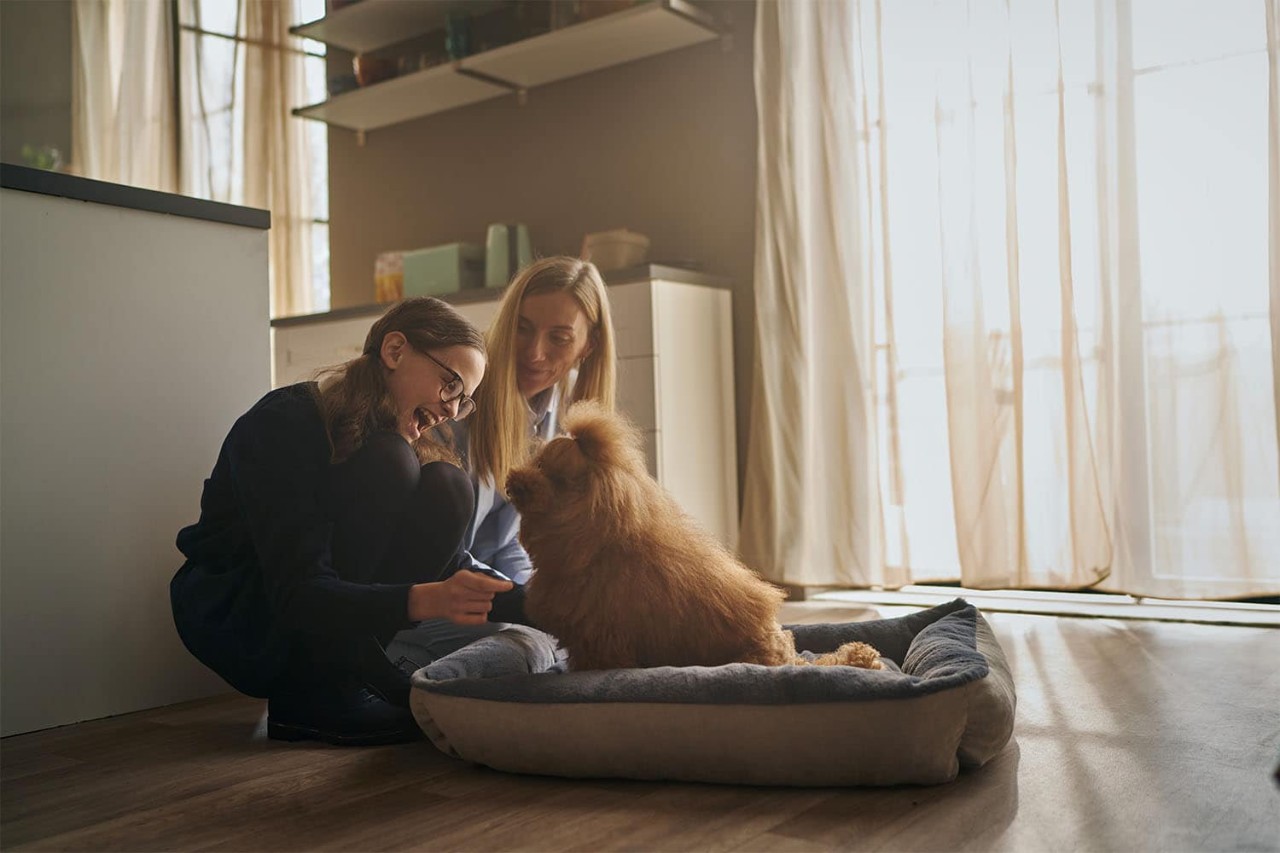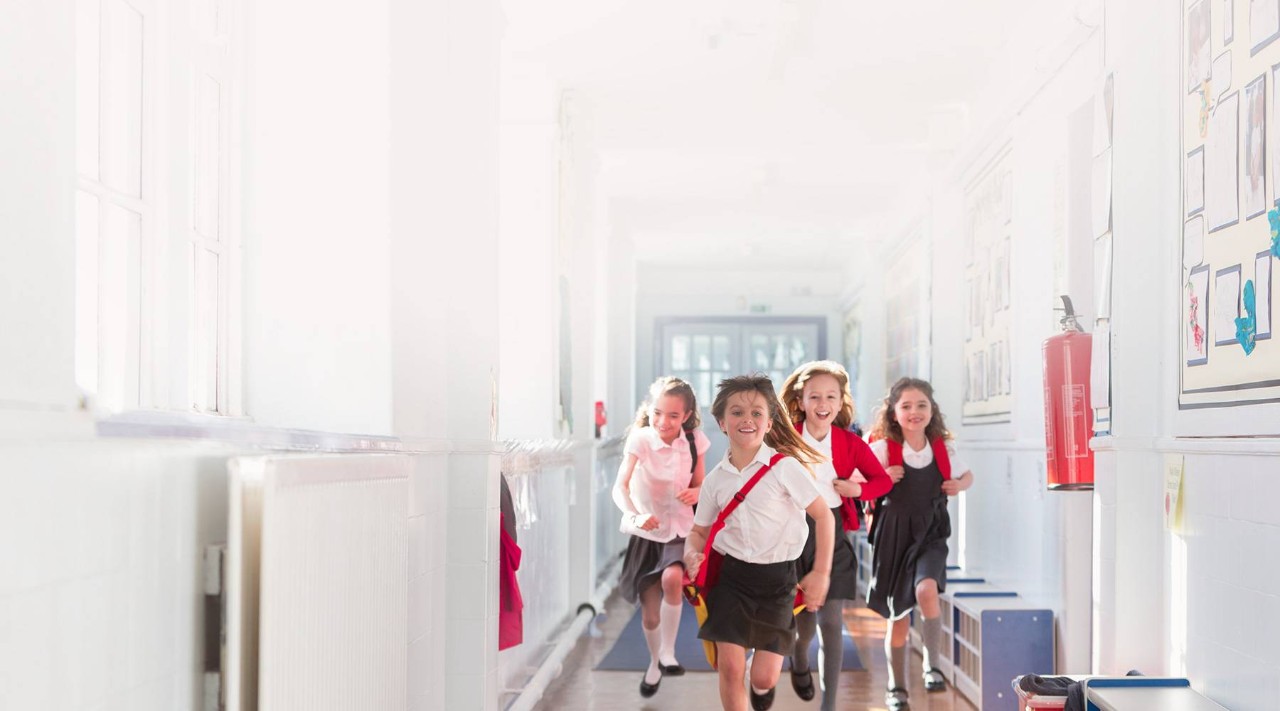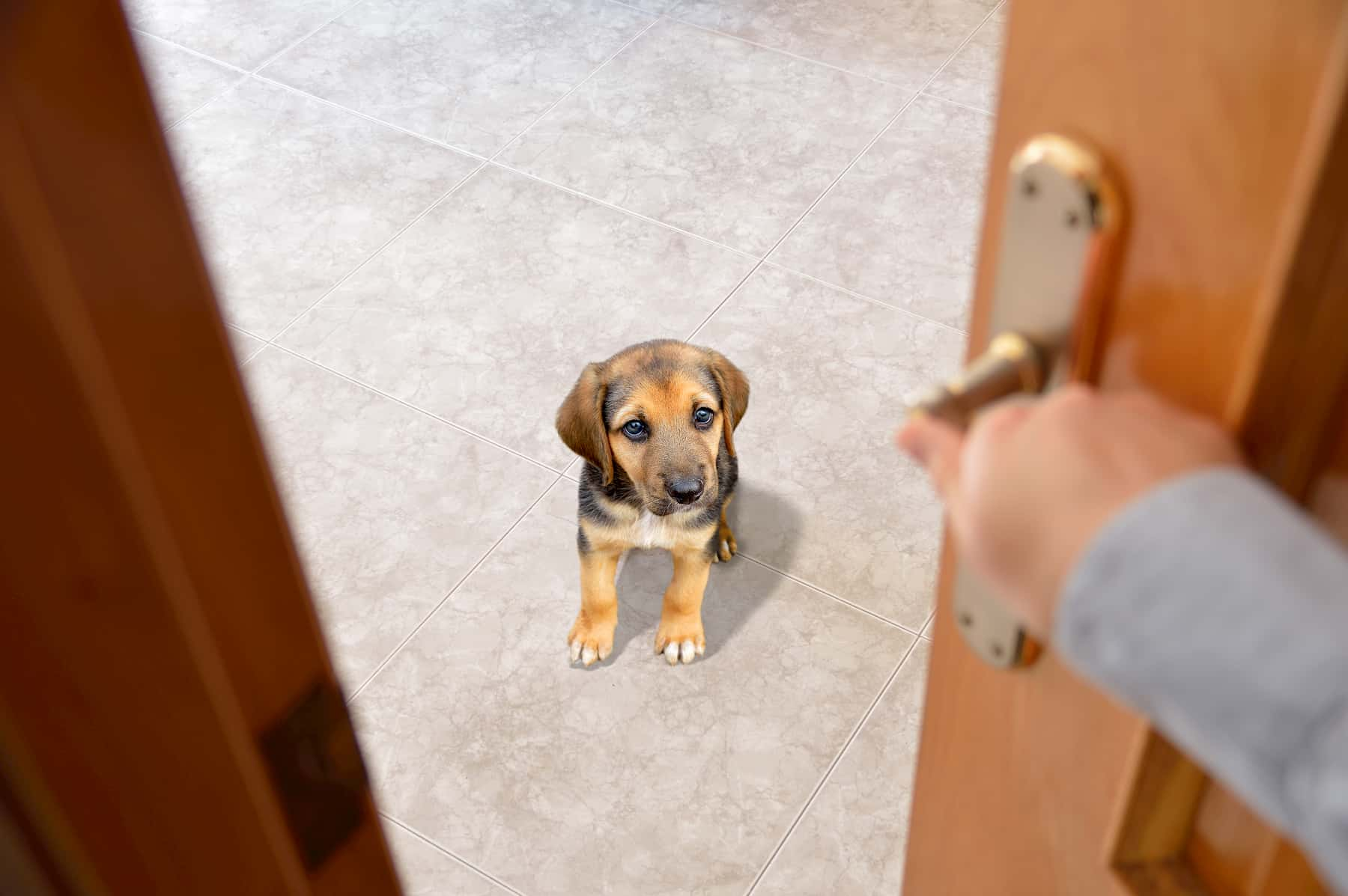Helping your pet adjust as COVID 19 restrictions ease
by Angela Hickey | 3 min read May 24th, 2021
As the COVID-19 restrictions begin to ease and inter-county travel opens up, many of us will be planning day trips or even staycations. We will be meeting friends for afternoon BBQ’s and going out for evening meals once again. Eventually we will be returning to our workplaces again, even on a hybrid basis, and won’t be at home as often as we have been during Level 5 lockdown. Have you considered how this change might impact your pet?
Dogs are more prone to stress if left alone. Cats, while they do have a more solitary nature, still need regular contact and affection from their owners. If you got a new pet during the lockdown, they will have benefitted a lot from having you around all day, and won’t have known an alternative routine without you yet.
Separation anxiety and/or boredom in your pet is a concern when you now have to be missing for large portions of the day. Symptoms of anxiety in dogs include whining, howling and barking or they may become depressed or destructive. Cats may groom excessively, vocalise, become depressed, and even develop stress related illnesses. This can best be avoided by preparing your pet in advance for your evenings out, return to work, etc.
Get Prepared Now to Avoid Separation Anxiety
Practice Distance: While you’re still at home, stay in a separate part of the house away from your pet after they have exercised and eaten so that they are relaxed. Encourage them to settle in their beds and start taking short trips away from the house, gradually increasing the time spent away.
Create Routine: Routines are very comforting for dogs and cats, so if possible start putting your new work routine in place before returning to work. Get up at a set time, feed them, etc. then leave the house for gradually increasing periods of time. Keep strong daily routines in place with times for play, toileting, walks and affection/cuddles, in line with appropriate times that will fit your work schedule once you are no longer working from home. This will build their confidence that you will return from your outings!
Wear them Out: If possible, give your dog a walk or your cat active play before you leave, to help them to settle and rest while you’re gone.
Coming Home: Be very calm as you leave the house, and when you get home ignore any excited behaviour. Talk soothingly and wait until they have calmed down again to pet them and be affectionate.
Create a soothing and enriched environment
Radio: Keep a radio on nearby as background music and human voices can be soothing for pets.
Chew Toys: Chewy toys and treats and frozen, stuffed Kong toys will keep dogs content. Chewing has a calming effect and will keep them both occupied and relaxed.
Working for their food: Use puzzle toy feeders and hide food in different locations. This will mentally occupy your dog or cat and tire them out, so that they will then sleep for a long period.
A soft bed: This will help them to get cosy and relaxed and you could add in an old item of your clothing with your scent on it for added comfort.
Pheromones: Dog Appeasing Pheromones (DAP) are sold as plug-in diffusers or slow-release collars to relieve stress. There are similar products for cats and these are available at your vet, your local pet shop or online.
Enriched Environment: Provide toys, scratching posts and climbing areas for indoor cats. Vary the toys that you provide each day as cats love novelty.
Get Outside Help
If you’ll be away from home for a long period of time and there is nobody to check on your dog during the day, consider hiring a local dog walker or bringing your dog to a Doggy Day Care facility even a few days a week so they can benefit from play with other dogs, socialisation etc. These facilities will have COVID-19 safety procedures in place, such as managing contacts, hand hygiene, social distancing, etc.
Get Professional Help
If your dog is not settling in your absence, you may need some guidance from a dog trainer. If your dog is very anxious, talk to your vet. They may provide a sedative-type medication for a short period to help your pet make the adjustment. If necessary, they will refer you to an animal behaviourist who will work with you and your pet to help improve their response to being left alone.
Boarding Kennels and Catteries
If you are planning a weekend, or longer, away on a staycation check out boarding kennels and catteries well in advance. Looking at their websites will give a good sense of how responsible they are at managing COVID safety issues. Most will have a system whereby you call them by phone on arrival and there is a ‘handover’ area where you can leave your pet in through one gate and they will collect them at the other side, with no physical contact between staff and pet parent.
Many hotels are now ‘pet friendly’ and will even provide you with contact details of local dog walkers, pet sitters, groomers and vets that you can avail of for your pet during your stay.
Planning well in advance for changes in our lifestyle as COVID restrictions ease is vital for you and your pet and will make the transition less stressful and more enjoyable for all.







